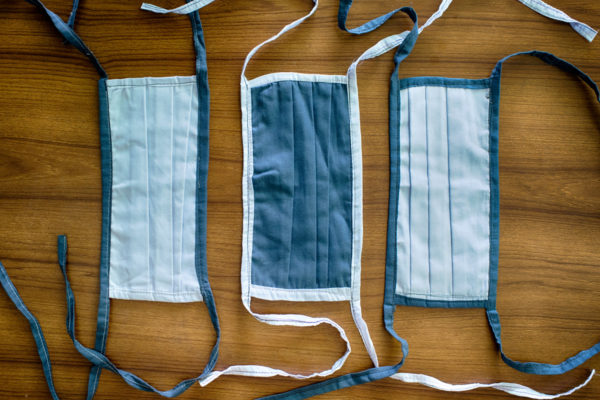As the residents of Cox’s Bazar refugee camp grapple with the spread of COVID-19, a team of Rohingya women have taken matters into their own hands. In ActionAid’s women-friendly spaces, women are making and selling masks to protect their community and earn an income.
“We made masks and sold them among our community. I like all activities I take part in like sewing, attending sessions. We are well informed about how to keep ourselves safe from coronavirus,” says 20-year-old Andiya Anima.
ActionAid Bangladesh is leading the initiative, supporting Rohingya women with the materials and training to make the face masks. Working on donated sewing machines, the women will distribute these masks to their families and communities. Andiya is one of many women who regularly attends the workshops; she has since made and sold 300 masks to meet the demand for personal protective equipment in the camp.

“I am wearing the mask I made and everyone in my family is wearing masks that I made. Also, when I sell masks in my community, I realise I am helping them too,” explains Andiya.
With 800,000 people living in Cox’s Bazar, social distancing is virtually impossible in the cramped living conditions, making preventative measures like wearing masks and hygiene all the more important to stem the rising number of coronavirus infections.
“I wash my hands frequently. We do not stay near or close. But it is difficult in the camp and in our shelter to keep distance. In our house there are eight people in a two room shelter. I try to motivate my family to maintain hygiene,” says Andiya.
Beyond making masks, the women-friendly spaces act as a forum for women to come together to seek support, information and share their experiences. At present they are used to communicate vital health and hygiene messages and combat misinformation about the coronavirus.

“Before entering [the space], we stand in a queue by keeping three feet distance, wash our hands with soap water and let ActionAid staff take our body temperature… We have learnt how to protect ourselves,” says 20-year old Hazera, a regular attendee at the women-friendly spaces.
“Regarding Shanti Khana, I am happy and I feel like it is an area of peaceful meaning,” explains Andiya.
Andiya repeatedly referred to the women-friendly spaces as ‘shanti khana’. In the local language, the term means a ‘place of peace’ or a ‘refuge’. In this context, it is used to describe a physical space where women can be with other women, be understood and feel safe.
By supporting women like Andiya, Hazera and Anowara through safe spaces in Cox’s Bazar, women can empower themselves with the skills and knowledge to transform their lives and support their community through crisis.